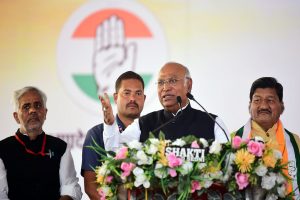With more than a month to go for the announcement of the next Prime Minister (5 September), the political narrative in Britain is going through a direly uncertain phase. The Defence Secretary, Ben Wallace, has let it be known that he will back Liz Truss over the Chancellor of the Exchequer, Rishi Sunak, for the rarefied office of Prime Minister. As the rift within the Tories has widened, Mr Wallace will have to shore up his standing not the least because he has been accused of angling for a job in the next government and at a sensitive juncture in the politics of Britain. Till now, Mr Wallace had kept his counsel without entering the Tory leadership contest. Some have expressed their disappointment quoting Abraham Lincoln ~ “Better to remain silent and be thought a fool than to speak out and remove all doubt.
Until now I’m not sure anyone thought Wallace a fool.” Mr Wallace, who has been described by Right-wing newspapers supporting Ms Truss as “kingmaker”, said: “From observing both Rishi Sunak and Liz in cabinet and on other occasions, she is the only candidate who has both the breadth and depth of experience needed to confront these challenges. Prior to being a foreign secretary, she held the cabinet post of Chief Secretary to the Treasury. As trade secretary, she has driven international trade deals and represented the United Kingdom at the G7, Nato, and UN. Her experience makes her better placed to stand up for the UK in these troubled times.” On Friday morning, Mr Wallace toured the studios seeking to inflict maximum damage on Mr Sunak. Asked by NBC radio station’s Nick Ferrari how obstructive the former Chancellor was in granting more cash to the armed forces, Mr Wallace replied: “I don’t think he was obstructive.”
The defence secretary said: “The multi-year settlement that we got was not what the Treasury had wanted. They wanted a one-year settlement. And it was vital that we got a multi-year settlement. And the Prime Minister effectively asserted his authority and ensured that’s what happened.” Mr Sunak was reportedly not in support, though he had said that it was a time of cost-cutting. It is generally believed that Mr Sunak would have a significant edge over his rival among swing voters if he became the Prime Minister. According to YouGuv, Mr Sunak’s net favourable score, the percentage that boasts a favourable opinion minus the percentage who have an “unfavourable opinion”, was minus 25, whereas Ms Truss’s was minus 45. Although both Mr Sunak and Ms Truss are considerably unpopular with the public as a whole, the former has a significant edge among swing voters. Ergo, the psephological swing will scarcely be intensely convincing. Britain is without a head of government.











